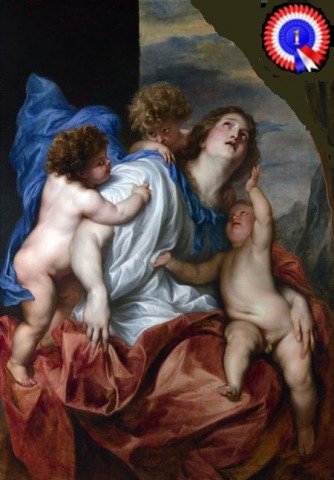
Query:
Is Christian charity compatible with competition, so that someone could say “I want to love God for His own sake more than anyone else”?
Reply:
Good question. Sometimes people think all forms of competition are prohibited by charity, and this is not true. For example, by competing in games, all children have more fun, and they explore and develop their skills more fully because the competition spurs them on. Naturally children try to win, but we teach them to take pleasure in good play by their opponents too.
On the other hand, we cannot genuinely compete in charity itself. Someone may desire to be a saint, but the more he advances in holiness the more he will want the same thing for everyone.
Charity is a common good. Some goods are common only in a very weak sense; for example, we all need a certain amount of wealth – I need food, I need clothing, I need shelter – but the fact that we all need these things doesn’t necessarily mean that we have communion in them, for I may get more of them by keeping you from having them. By contrast, the virtues are common in a strong sense. If you have more courage than I do, I too benefit from your courage, and it would be absurd for me to say “No fair! You only got all that courage by taking it from me!” Supernatural charity is a common good in an even stronger sense than the other virtues are, because everyone who possesses charity desires its overflow into others. This should be no surprise, for that’s how we get it from God. It's an “infused” virtue. He gives it away.
One of the paradoxes of charity is the greatness of being small. Consider St. Thérèse of Lisieux, whose gift was to perform even the smallest of everyday acts with heroic humility and hiddenness. Her case is paradoxical, because in her afflictions and low station she did not have the conventional opportunities for great deeds; the opportunity she seized for greatness was the very fact of her afflictions and low station. This sort of “opportunity” cannot even be recognized as such, except by grace, and would have been invisible to someone like Aristotle.
That is why she was able to write the startling words that God “made me understand my own glory would not be evident to the eyes of mortals, that it would consist in becoming a great saint! This desire could certainly appear daring if one were to consider how weak and imperfect I was, and how, after seven years in the religious life, I still am weak and imperfect. I always feel, however, the same bold confidence of becoming a great saint because I don’t count on my merits since I have none, but I trust in Him who is Virtue and Holiness.”